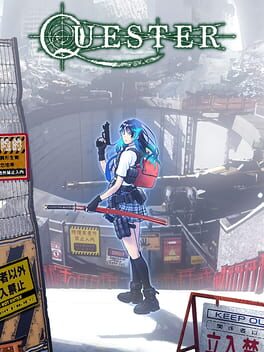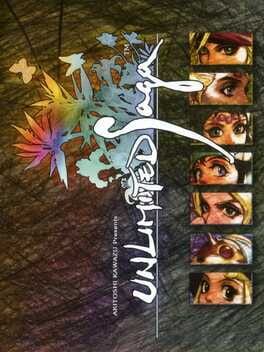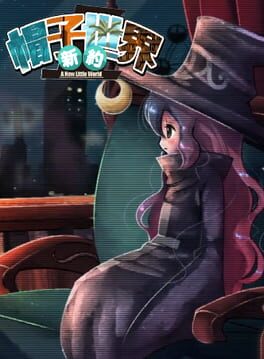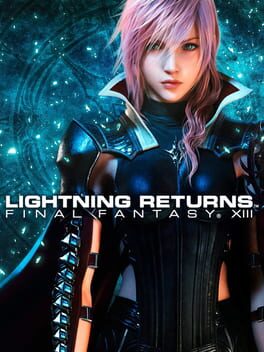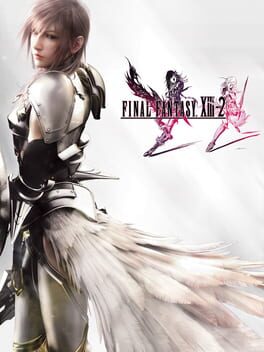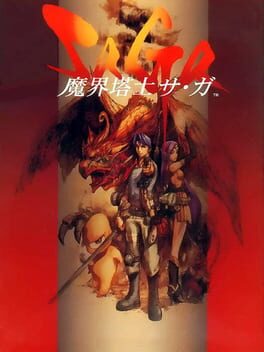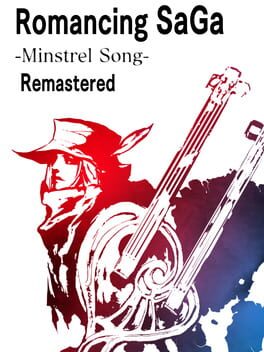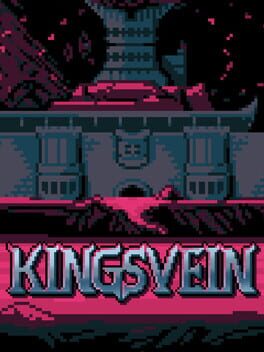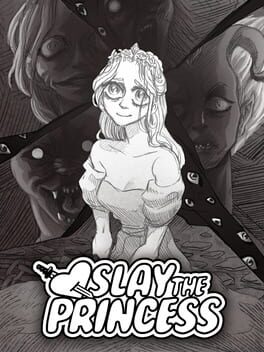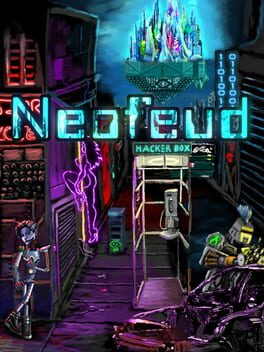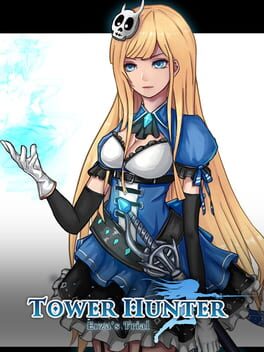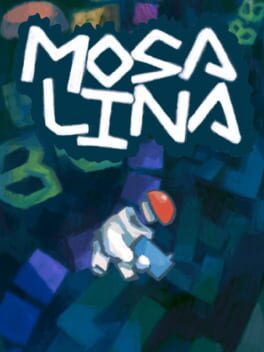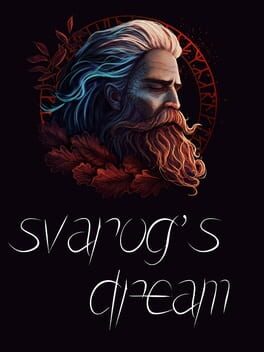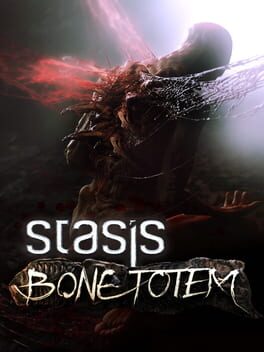jademonkey
2023
This is a fun little dungeon crawler!
The battle system is solid. Each character has a number of AP to spend every turn. You set the abilities you want, and then combat plays out with autotargeting. The autotargeting was generally smart, so it allowed the game to move a bit faster will still allowing all of your characters to have multiple actions per turn. These actions were also interesting running the gamut of attacks, buffs, heals, debuffs, AoEs, attacks with debuffs, etc. Everything is useful -- stun and bleed played a big roll even on important boss fights for my team. Unfortunately, even with combat speed cranked all of the way up, things got a bit tedious by the end. I was browsing reddit as I waited for turns to play out in the last couple of zones.
I really enjoyed the equipment system in the game. Essentially, all of your abilities in combat are determined by the two weapons and one accessory each character can equip. Each piece of equipment is limited to certain classes and scales with a couple different stats, while sometimes providing new passives in addition to the active abilities. This made looting very exciting all game -- not only would numbers go up when you found a new weapon, but build variety would meaningfully change as well. An exciting loot system goes a long way to making a dungeon crawler fun!
The presentation was simple but effective. The controls for the UI were bafflingly weird, but they weren't too much of an impediment one I figured them out.
Another minor grip with the game is that the new members joining were typically far underlevelled, without any quick way of catching them up. I did switch one member out fairly late in the game, but it took hours for the new recruit to match up to the rest. It was worth it since she ended up being my best damage dealer, but it was needlessly annoying getting her caught up. Apparently New Game plus will allow you to start with a different team altogether, but I'm moving on for now at least.
Quester is a solid dungeon crawler, well worth a look if you like the genre.
The battle system is solid. Each character has a number of AP to spend every turn. You set the abilities you want, and then combat plays out with autotargeting. The autotargeting was generally smart, so it allowed the game to move a bit faster will still allowing all of your characters to have multiple actions per turn. These actions were also interesting running the gamut of attacks, buffs, heals, debuffs, AoEs, attacks with debuffs, etc. Everything is useful -- stun and bleed played a big roll even on important boss fights for my team. Unfortunately, even with combat speed cranked all of the way up, things got a bit tedious by the end. I was browsing reddit as I waited for turns to play out in the last couple of zones.
I really enjoyed the equipment system in the game. Essentially, all of your abilities in combat are determined by the two weapons and one accessory each character can equip. Each piece of equipment is limited to certain classes and scales with a couple different stats, while sometimes providing new passives in addition to the active abilities. This made looting very exciting all game -- not only would numbers go up when you found a new weapon, but build variety would meaningfully change as well. An exciting loot system goes a long way to making a dungeon crawler fun!
The presentation was simple but effective. The controls for the UI were bafflingly weird, but they weren't too much of an impediment one I figured them out.
Another minor grip with the game is that the new members joining were typically far underlevelled, without any quick way of catching them up. I did switch one member out fairly late in the game, but it took hours for the new recruit to match up to the rest. It was worth it since she ended up being my best damage dealer, but it was needlessly annoying getting her caught up. Apparently New Game plus will allow you to start with a different team altogether, but I'm moving on for now at least.
Quester is a solid dungeon crawler, well worth a look if you like the genre.
2002
Man, I really wanted to like Unlimited SaGa. I gave it the better part of 15 hours to grow on me, going through the majority of Ventus’ scenario to my understanding, but I honestly just think it’s not a well made game.
I actually love the board game style exploration in concept. Unfortunately, the interface is just awful and really drags down the entire game. For example, chests take way too many button presses to deal with – search with the sharpeye skill, deal with the traps, then unlock, then handle the magic lock, then maybe use the fortune teller skill a few times, then open. Each of which requires multiple presses to open the action menu, select the chest, select the character, scroll to the ability, activate the ability, do the reel. Also, some basic party management isn’t even available in cities and has to be done on the adventure map, which is weird. Doubly because you can’t save outside of town.
Very nice art and music, generally speaking. Everything in battle looks great and has a lot of character – the sprite work is extremely good! I really do enjoy the character and monster designs. The dungeons themselves have almost no detail on the map, which stinks since you spend so long looking at it. There’s artwork off the side, but the interface is very intrusive and frequently blocks a portion of the art. The whole thing is just ugly and low effort. While I love the combat theme, most of the music is just kind of there.
I have negative feelings about the combat system, even discounting the barrier to entry. I absolutely do not like the implementation of HP/LP here. HP is really just a probabilistic buffer to LP damage – sometimes you’ll take an LP from a scratch and it just feels bad. Since you don’t go down at 0 HP and sometimes you take LP damage at high health, it sometimes feels like your decisions in combat don’t matter. Combat became a frustration that I wanted to avoid since there weren’t any immediate rewards, just a chance for a better tile at the end of the mission – which is crucial, so you really don’t want to avoid too much combat. The challenge is in being slowly worn down over the course of overly long dungeons, which I simply don’t find enjoyable. The majority of the tactics in fights revolves around knowing which units to move first (and thus make more likely to be targeted) and which ones to let sit out to recover HP, which is neat, but I wish the abilities were more interesting to support it. Otherwise, you’re generally just selecting which attack reels to use based on whether you need HP or LP damage more. Magic is really hard to come by, so chances are you won’t have a whole lot of choice there unless you really gun for it and know what you are doing. Many of the low level spells also just boost your ability to cast magic with that school or provide a detection spell for a certain kind of enemy, so you really have to luck out to actually get anything useful. It would also be nice to have more information visible in combat, such as how many LP an enemy has and such.
I really don’t like the growth tile system. Being forced to take a tile and replace one you already have every mission means that you’re actually making your character slightly weaker after a mission sometimes. Further, the tiles offered are randomized, and sometimes the ones you need just don’t drop, despite taking the actions that make them more likely to drop. It’s another place where the basic idea is interesting, but the actual execution ends up being more frustrating than enjoyable.
I’m not a big fan of the reel system, but I think it’s fine design-wise. Just not to my taste.
Like I said – I really wanted to like Unlimited SaGa, and I gave it more than its fair shake to grow on me. There really are a lot of neat ideas here, and there's nothing quite like it. I think a remake that fixes the interface annoyances, makes magic more available, tweaks the growth tile system in the way mentioned, and totally reworks the HP/LP system could actually be a pretty darn awesome game.
I actually love the board game style exploration in concept. Unfortunately, the interface is just awful and really drags down the entire game. For example, chests take way too many button presses to deal with – search with the sharpeye skill, deal with the traps, then unlock, then handle the magic lock, then maybe use the fortune teller skill a few times, then open. Each of which requires multiple presses to open the action menu, select the chest, select the character, scroll to the ability, activate the ability, do the reel. Also, some basic party management isn’t even available in cities and has to be done on the adventure map, which is weird. Doubly because you can’t save outside of town.
Very nice art and music, generally speaking. Everything in battle looks great and has a lot of character – the sprite work is extremely good! I really do enjoy the character and monster designs. The dungeons themselves have almost no detail on the map, which stinks since you spend so long looking at it. There’s artwork off the side, but the interface is very intrusive and frequently blocks a portion of the art. The whole thing is just ugly and low effort. While I love the combat theme, most of the music is just kind of there.
I have negative feelings about the combat system, even discounting the barrier to entry. I absolutely do not like the implementation of HP/LP here. HP is really just a probabilistic buffer to LP damage – sometimes you’ll take an LP from a scratch and it just feels bad. Since you don’t go down at 0 HP and sometimes you take LP damage at high health, it sometimes feels like your decisions in combat don’t matter. Combat became a frustration that I wanted to avoid since there weren’t any immediate rewards, just a chance for a better tile at the end of the mission – which is crucial, so you really don’t want to avoid too much combat. The challenge is in being slowly worn down over the course of overly long dungeons, which I simply don’t find enjoyable. The majority of the tactics in fights revolves around knowing which units to move first (and thus make more likely to be targeted) and which ones to let sit out to recover HP, which is neat, but I wish the abilities were more interesting to support it. Otherwise, you’re generally just selecting which attack reels to use based on whether you need HP or LP damage more. Magic is really hard to come by, so chances are you won’t have a whole lot of choice there unless you really gun for it and know what you are doing. Many of the low level spells also just boost your ability to cast magic with that school or provide a detection spell for a certain kind of enemy, so you really have to luck out to actually get anything useful. It would also be nice to have more information visible in combat, such as how many LP an enemy has and such.
I really don’t like the growth tile system. Being forced to take a tile and replace one you already have every mission means that you’re actually making your character slightly weaker after a mission sometimes. Further, the tiles offered are randomized, and sometimes the ones you need just don’t drop, despite taking the actions that make them more likely to drop. It’s another place where the basic idea is interesting, but the actual execution ends up being more frustrating than enjoyable.
I’m not a big fan of the reel system, but I think it’s fine design-wise. Just not to my taste.
Like I said – I really wanted to like Unlimited SaGa, and I gave it more than its fair shake to grow on me. There really are a lot of neat ideas here, and there's nothing quite like it. I think a remake that fixes the interface annoyances, makes magic more available, tweaks the growth tile system in the way mentioned, and totally reworks the HP/LP system could actually be a pretty darn awesome game.
I’m astounded that Hat World was made in RPGmaker. Valkyrie Profile style exploration, with Romancing SaGa style combat, character progression, route structure, and more. There's tons of side content, customizable (and potentially very difficult) boss fight difficulty, and a surprisingly interesting story. There’s a fair amount of Madoka and Phillip K Dick going on in the story, and I love it.
A lot of the rough edges from the Romancing SaGa series are filed down – quests are more clear, encounter level increases when beating a boss instead of with all battles, etc. There’s a bit more room for grinding throughout the game than most of the Romancing SaGa series, but most means of character progression are gated by the current enemy difficulty, so you can only grind so far. There are a ton of optional end game bosses to fight, which tend to require specific strategies. There were several I found harder than any of the final SaGa bosses.
The game looks and sounds quite good for a solo RPGmaker project as well. The pixel art conveys a lot of character, and the music and sound effects were well chosen.
It leans too hard into anime tropes for my taste in general, but I'm not too horribly bothered by it. In particular, I’d really rather the game not have the one section with 'lolicon' jokes, but luckily it's a very small portion of the game and I’m fully capable of rolling my eyes and moving on. While the customization options are great, I do wish characters had more innate traits setting them apart, though that’s a fairly minor quibble.
I had an absolute blast with the game. It says a lot that I'm tempted to jump straight back into another route without taking a break first. I almost never replay games without at least a year or two in between.
A lot of the rough edges from the Romancing SaGa series are filed down – quests are more clear, encounter level increases when beating a boss instead of with all battles, etc. There’s a bit more room for grinding throughout the game than most of the Romancing SaGa series, but most means of character progression are gated by the current enemy difficulty, so you can only grind so far. There are a ton of optional end game bosses to fight, which tend to require specific strategies. There were several I found harder than any of the final SaGa bosses.
The game looks and sounds quite good for a solo RPGmaker project as well. The pixel art conveys a lot of character, and the music and sound effects were well chosen.
It leans too hard into anime tropes for my taste in general, but I'm not too horribly bothered by it. In particular, I’d really rather the game not have the one section with 'lolicon' jokes, but luckily it's a very small portion of the game and I’m fully capable of rolling my eyes and moving on. While the customization options are great, I do wish characters had more innate traits setting them apart, though that’s a fairly minor quibble.
I had an absolute blast with the game. It says a lot that I'm tempted to jump straight back into another route without taking a break first. I almost never replay games without at least a year or two in between.
Yay, I've finally finished the wild ride of FF13! It's taken me just under 2 months of playing almost nothing else. I feel comfortable in saying that it's my second favorite experience with the Final Fantasy franchise, with only FF Tactics narrowly beating it out.
I don't really feel up to writing a proper review or a larger list of thoughts, so I'll just jot down a couple of things so I can look back and remember why I liked this rather divisive game.
The world built in this game is my favorite of all Final Fantasy games. I absolutely loved the exploration of what would happen if people stopped aging for 500 years and no new life could be born. Consequently, Lightning Returns was one of the rare JRPGs where I actually cared about doing the side quests. Which was good, since that's the way you level up lol. Also the voice acting was rather hit or miss.
The combat system is also excellent. Learning enemy patterns and jumping between costumes to pull out the right attacks or blocks/dodges/counters at the perfect time is very rewarding. Again, it's good that I felt this way, since you'll have to fight quite a lot if you want to continually freeze the timer.
Oh yeah, the timer. It was cool in that it gave you the sense of urgency you'd want with this type of story, but also a little annoying at times. In the end, I had more extra days that I just threw away than days I actually needed, though, so the negative aspects were largely mitigated.
You get to play dress up a lot and that's been a favorite thing of mine in video games since I played City of Heroes back in the day. RIP.
The main story was a little thin, but I liked it. None of the twists were particularly surprising, but it was what I was hoping for. It was also very cool to see how all of the main characters were affected by the horrible fever-dream of a world. The ending was completely over the top, but in the best and most thematically appropriate way possible. I loved it. I loved this game.
Edit: Oh yeah. Excellent music again. Not quite as striking and varied as XIII-2, but definitely something I'll turn throw on from time to time while I'm at my computer.
I don't really feel up to writing a proper review or a larger list of thoughts, so I'll just jot down a couple of things so I can look back and remember why I liked this rather divisive game.
The world built in this game is my favorite of all Final Fantasy games. I absolutely loved the exploration of what would happen if people stopped aging for 500 years and no new life could be born. Consequently, Lightning Returns was one of the rare JRPGs where I actually cared about doing the side quests. Which was good, since that's the way you level up lol. Also the voice acting was rather hit or miss.
The combat system is also excellent. Learning enemy patterns and jumping between costumes to pull out the right attacks or blocks/dodges/counters at the perfect time is very rewarding. Again, it's good that I felt this way, since you'll have to fight quite a lot if you want to continually freeze the timer.
Oh yeah, the timer. It was cool in that it gave you the sense of urgency you'd want with this type of story, but also a little annoying at times. In the end, I had more extra days that I just threw away than days I actually needed, though, so the negative aspects were largely mitigated.
You get to play dress up a lot and that's been a favorite thing of mine in video games since I played City of Heroes back in the day. RIP.
The main story was a little thin, but I liked it. None of the twists were particularly surprising, but it was what I was hoping for. It was also very cool to see how all of the main characters were affected by the horrible fever-dream of a world. The ending was completely over the top, but in the best and most thematically appropriate way possible. I loved it. I loved this game.
Edit: Oh yeah. Excellent music again. Not quite as striking and varied as XIII-2, but definitely something I'll turn throw on from time to time while I'm at my computer.
2011
This review/collection of thoughts is just for the main story. I plan to play at least some of the DLC and collect some more fragments, but I'm heading out of town for a week or so tomorrow and want to jot down my thoughts beforehand.
Characters: While the characters and character interactions were a high point for me in the first game, here it's just kind of a "meh" point. Serah doesn't have as much personality as I'd like for a lead. She's not a bad character, but she really doesn't live up to the cast from 13. Noel, on the other hand, has a lot more personality and is an enjoyable lead. My only complaint is that I wish they would have leaned a lot more heavily into his back story. He's a little too normal of a dude for someone with his origin. The main villain is well done. I love how they tied in and developed Hope. The character design/costumes in this game were... not my favorite.
Story: I love time travel stories, and this was no exception. It wasn't a particularly cerebral story, but it stuck to it's premise and delivered something that was a lot of fun. I was never as emotional invested in it as I would have liked, but it kept my curious and delivered some good punches at the end. Definitely has me excited to play the DLC and Lightning Returns when I get back.
Battle: Honestly, a huge step back from FF13 in my eyes. The couple of things that they improved just didn't make up for the missteps. In FF13, the fastest and most effective way to finish battles generally involved the use of saboteurs and synergists. If things got hairy, I needed sentinels (well, only in a few places... ) and medics. Staggering enemies quickly and maximizing stagger damage was important. In 13-2, synergists and saboteurs are immensely less effective (and wouldn't be particularly needed otherwise...), to the point that I essentially didn't touch them. I needed sentinels even less than in the first game, and even many boss fights could be won quickly enough that medics weren't necessary. So, the class coverage went from 5.5/6 to like 2.5/6 in any give battle.
The game was simply too easy. I heard this beforehand, so I purposefully dodged fights regularly to try to stunt my growth. Unfortunately, this wasn't always possible (cie'th city was the worst ugh) and I ended up overpowered regardless. After the bitch of a final boss fight in FF13, sailing right through the final bosses with only a single moment of danger was a big disappointment.
Music: All over the place in the best of ways. The nu-metal screamo-ish themes for some of the bosses and chocobos had me grinning like an idiot. There were vocal themes that had strong Nier/Nier Automata vibes to them, which I absolutely loved. The battle themes ranged from wistful electronica to metal adjacent prog rock with some kickin violins. Honestly, the music is a large part of what bumped this game from 3 stars to 4 stars for me. So damn fun and good
Monsters: My other favorite part of this game. I love collecting and breeding monsters, and I enjoyed the little bit I dabbled in here. I kept myself from going too far down the rabbit hole, due to the aformentioned lack of difficulty, but I'm looking forward to playing with it some more during the post game content. Putting newsboy caps on killer robots was a particular highlight for me. Also, Flanitors cracked me up in FF13, and having them actually be a useful member of my time was double plus good.
Linearity: Exact opposite of FF13. I honestly enjoyed the linearity of 13, but this is a damn time travel game. I had a lot of fun popping in and doing a side quest here and there at different points in history. Grabbing the fragments for lore is fun too, and I'm looking forward to finding more.
Graphics: Big step back from 13, but not bad at all for 2011.
Fun Factor: Here's the thing. The game was just fun. Yeah, I think it was worse in most of the more 'serious' elements as compared to 13. But, I had fun almost every step of the way. There were several moments in the game that had me laughing, and a bunch that had me going "That's rad".
Length: The 25ish hours it took me to beat the main story (plus a couple of side areas) were spot on, and I feel satisfied but eager to do some of the side content. That is exactly what I like to feel when I finish the game. Far too many JRPGs overstay their welcome, and I'm so glad this series doesn't.
Conclusion: One of the most enjoyable Final Fantasy games, and a very solid JRPG in general. I have a feeling the soundtrack will find its way to my regular playlists.
Characters: While the characters and character interactions were a high point for me in the first game, here it's just kind of a "meh" point. Serah doesn't have as much personality as I'd like for a lead. She's not a bad character, but she really doesn't live up to the cast from 13. Noel, on the other hand, has a lot more personality and is an enjoyable lead. My only complaint is that I wish they would have leaned a lot more heavily into his back story. He's a little too normal of a dude for someone with his origin. The main villain is well done. I love how they tied in and developed Hope. The character design/costumes in this game were... not my favorite.
Story: I love time travel stories, and this was no exception. It wasn't a particularly cerebral story, but it stuck to it's premise and delivered something that was a lot of fun. I was never as emotional invested in it as I would have liked, but it kept my curious and delivered some good punches at the end. Definitely has me excited to play the DLC and Lightning Returns when I get back.
Battle: Honestly, a huge step back from FF13 in my eyes. The couple of things that they improved just didn't make up for the missteps. In FF13, the fastest and most effective way to finish battles generally involved the use of saboteurs and synergists. If things got hairy, I needed sentinels (well, only in a few places... ) and medics. Staggering enemies quickly and maximizing stagger damage was important. In 13-2, synergists and saboteurs are immensely less effective (and wouldn't be particularly needed otherwise...), to the point that I essentially didn't touch them. I needed sentinels even less than in the first game, and even many boss fights could be won quickly enough that medics weren't necessary. So, the class coverage went from 5.5/6 to like 2.5/6 in any give battle.
The game was simply too easy. I heard this beforehand, so I purposefully dodged fights regularly to try to stunt my growth. Unfortunately, this wasn't always possible (cie'th city was the worst ugh) and I ended up overpowered regardless. After the bitch of a final boss fight in FF13, sailing right through the final bosses with only a single moment of danger was a big disappointment.
Music: All over the place in the best of ways. The nu-metal screamo-ish themes for some of the bosses and chocobos had me grinning like an idiot. There were vocal themes that had strong Nier/Nier Automata vibes to them, which I absolutely loved. The battle themes ranged from wistful electronica to metal adjacent prog rock with some kickin violins. Honestly, the music is a large part of what bumped this game from 3 stars to 4 stars for me. So damn fun and good
Monsters: My other favorite part of this game. I love collecting and breeding monsters, and I enjoyed the little bit I dabbled in here. I kept myself from going too far down the rabbit hole, due to the aformentioned lack of difficulty, but I'm looking forward to playing with it some more during the post game content. Putting newsboy caps on killer robots was a particular highlight for me. Also, Flanitors cracked me up in FF13, and having them actually be a useful member of my time was double plus good.
Linearity: Exact opposite of FF13. I honestly enjoyed the linearity of 13, but this is a damn time travel game. I had a lot of fun popping in and doing a side quest here and there at different points in history. Grabbing the fragments for lore is fun too, and I'm looking forward to finding more.
Graphics: Big step back from 13, but not bad at all for 2011.
Fun Factor: Here's the thing. The game was just fun. Yeah, I think it was worse in most of the more 'serious' elements as compared to 13. But, I had fun almost every step of the way. There were several moments in the game that had me laughing, and a bunch that had me going "That's rad".
Length: The 25ish hours it took me to beat the main story (plus a couple of side areas) were spot on, and I feel satisfied but eager to do some of the side content. That is exactly what I like to feel when I finish the game. Far too many JRPGs overstay their welcome, and I'm so glad this series doesn't.
Conclusion: One of the most enjoyable Final Fantasy games, and a very solid JRPG in general. I have a feeling the soundtrack will find its way to my regular playlists.
2009
I've had a long history with the Final Fantasy games, starting back with 7 when it first released. I played 3 and 5-9 back in the day. I loved the series at first, and then not so much... so I barely touched it for over a decade (almost 2? good god). I finally played FF12 Zodiac Age earlier this year to see if it would rekindle my childhood love. It didn't. So I figured, what the hell, I'll play the game that long time fans of the series seem to hate the most. After all, I loved FF8 and hated FF9, so I guess every day is opposite day for me when it comes to Final Fantasy.
So, here are some thoughts in no real order:
Linearity: I was fine with it. Exploration in most other Final Fantasy games wasn't that interesting to me anyway. I play this type of game for the characters and the stories. I appreciated just getting to the point for the first 10 Chapters. Also, the hallways are goddamn beautiful and have great music, so that's cool.
No Towns: Why would you go into town when you're on the run? I legitimately thought it gave the game a really cool feeling of actually having to operate outside of society. Also, much like not caring too much about exploration in other Final Fantasy games, I never found towns that interesting to explore. I find that most JRPGs don't do a great job of delivering interesting side stories or fun flavor dialogue anyway.
Battle: By far my favorite mainline Final Fantasy system. I like Tactics more, but that's probably not a fair comparison. Dancing between the paradigms to get just enough healing, buffs and debuffs in while 5 starring everything I could was a great time. Making hallway battles potentially lethal in quite a few parts of the game made battle much more exciting. The only thing that really annoyed me was how slow the menus felt... the game is far too fast paced to faff about individually selecting abilities in most cases. Still, operating fast and furious at a slightly higher level of control kept me entertained throughout the game.
Characters: I liked them. I actually liked watching Hope grow as the game progressed. Dude was 14 and he figured out some heavy shit. Watching Lightning "lighten" up a bit was rewarding, too. Snow was the shounen protagonist I wanted and deserved. And Sazh was the man. Definitely the most relatable Final Fantasy character ever. Vanille was a fine character, though the voice acting was certainly interesting...
Story: I enjoyed it from the beginning. I didn't find the jargon that frightening. The plans on of the big bad were crazy but made sense by the end, like other Final Fantasies. Overall, the story was decent to good.
Crystarium: Ok, character advancement was a bit boring. That said, I liked that each character had a solid niche. I also liked that the vast majority of abilities were useful throughout the game. I didn't mind having 'level caps' throughout the story, either.
Items and weapons and stuff: Yeah, they dropped the ball here. It didn't have too much of a negative impact on my experience, but having better customization options through itemization (and leveling) would have definitely elevated the game.
Game Length: It took me a little under 45 hours to complete the main game + 25 or so hunts that were convenient to do along the way. Overall, the game really only felt like it dragged on in a couple of places (Chapter 7 and especially Chapter 10) to me, which is pretty good for a JRPG. I was ready to be done when I beat the last boss, but didn't feel like it was a chore. I may go back and try to do more of the hunts at some point, since I enjoy the game play, but the backlog never ends...
Conclusions: The things that people hate about the game generally just didn't matter to me, or were actually positives from my perspective. With how much I liked the battle system, characters, visuals and music, I think it's replaced FF8 as my favorite game in the main series. It doesn't quite make my "All Time Favorites" shelf, but it was a darn good experience from where I'm standing. FF13 has successfully rekindled my interest in the series. I'll be playing the rest of the trilogy and several other FF games over the next few months (years?).
So, here are some thoughts in no real order:
Linearity: I was fine with it. Exploration in most other Final Fantasy games wasn't that interesting to me anyway. I play this type of game for the characters and the stories. I appreciated just getting to the point for the first 10 Chapters. Also, the hallways are goddamn beautiful and have great music, so that's cool.
No Towns: Why would you go into town when you're on the run? I legitimately thought it gave the game a really cool feeling of actually having to operate outside of society. Also, much like not caring too much about exploration in other Final Fantasy games, I never found towns that interesting to explore. I find that most JRPGs don't do a great job of delivering interesting side stories or fun flavor dialogue anyway.
Battle: By far my favorite mainline Final Fantasy system. I like Tactics more, but that's probably not a fair comparison. Dancing between the paradigms to get just enough healing, buffs and debuffs in while 5 starring everything I could was a great time. Making hallway battles potentially lethal in quite a few parts of the game made battle much more exciting. The only thing that really annoyed me was how slow the menus felt... the game is far too fast paced to faff about individually selecting abilities in most cases. Still, operating fast and furious at a slightly higher level of control kept me entertained throughout the game.
Characters: I liked them. I actually liked watching Hope grow as the game progressed. Dude was 14 and he figured out some heavy shit. Watching Lightning "lighten" up a bit was rewarding, too. Snow was the shounen protagonist I wanted and deserved. And Sazh was the man. Definitely the most relatable Final Fantasy character ever. Vanille was a fine character, though the voice acting was certainly interesting...
Story: I enjoyed it from the beginning. I didn't find the jargon that frightening. The plans on of the big bad were crazy but made sense by the end, like other Final Fantasies. Overall, the story was decent to good.
Crystarium: Ok, character advancement was a bit boring. That said, I liked that each character had a solid niche. I also liked that the vast majority of abilities were useful throughout the game. I didn't mind having 'level caps' throughout the story, either.
Items and weapons and stuff: Yeah, they dropped the ball here. It didn't have too much of a negative impact on my experience, but having better customization options through itemization (and leveling) would have definitely elevated the game.
Game Length: It took me a little under 45 hours to complete the main game + 25 or so hunts that were convenient to do along the way. Overall, the game really only felt like it dragged on in a couple of places (Chapter 7 and especially Chapter 10) to me, which is pretty good for a JRPG. I was ready to be done when I beat the last boss, but didn't feel like it was a chore. I may go back and try to do more of the hunts at some point, since I enjoy the game play, but the backlog never ends...
Conclusions: The things that people hate about the game generally just didn't matter to me, or were actually positives from my perspective. With how much I liked the battle system, characters, visuals and music, I think it's replaced FF8 as my favorite game in the main series. It doesn't quite make my "All Time Favorites" shelf, but it was a darn good experience from where I'm standing. FF13 has successfully rekindled my interest in the series. I'll be playing the rest of the trilogy and several other FF games over the next few months (years?).
2002
For my money, it’s only worth playing if you have a historical curiosity or made the bizarre life decision to play every SaGa game like me. It’s a simpler and worse version of SaGa 2 all the way around – game structure, narrative, game mechanics, even music imho. It definitely feels like a prototype, given the gift of hindsight.
That said, it introduced one of my favorite race systems ever. You have humans who gain stats through buying potions, mutants who randomly gain stats and abilities (including losing abilities) after each battle, and monsters that change into enemies through eating their flesh. The most enjoyable part of this game was a 15 minute period where I lucked into a series of monster forms that took my monster from the weakest member of my party to the most powerful by a noticeable margin.
Other than that, you’re climbing a tower and going to different worlds with a fairly thin storyline tying everything together. Oh, and you can only hold 8 items, which is extremely annoying since you need items to cure status effects, you want to carry healing, and all of your weapons have durability that can never be repaired. Annoying, but manageable.
What’s not manageable is the absolutely atrocious late game section where you get attacked by an immortal phoenix every 1-3 steps while you try to figure out where to go. Running away seems to be a set 50/50 chance, so you get to spend a lot of time failing to run and having status effects dumped on your characters or just having them take massive damage. I was finding the game chill, if not particularly inspiring, up until that point. From that point on, though, I only finished out the game because I'm stubborn and my goal is to beat every game in the series.
Speeding through the final portion of the game left me with a very difficult final boss fight. That actually ended up being a good thing -- barely scraping by on my third try added some weight to the twist and the end and was actually a nice way to finish my time with the game.
While I love the human/mutant/monster system and appreciate the foundation Makai Toushi SaGa laid, I just can’t get past how miserable I found such a large chunk of the game. It’s the only game in the series I have absolutely no interest in returning to in the future.
That said, it introduced one of my favorite race systems ever. You have humans who gain stats through buying potions, mutants who randomly gain stats and abilities (including losing abilities) after each battle, and monsters that change into enemies through eating their flesh. The most enjoyable part of this game was a 15 minute period where I lucked into a series of monster forms that took my monster from the weakest member of my party to the most powerful by a noticeable margin.
Other than that, you’re climbing a tower and going to different worlds with a fairly thin storyline tying everything together. Oh, and you can only hold 8 items, which is extremely annoying since you need items to cure status effects, you want to carry healing, and all of your weapons have durability that can never be repaired. Annoying, but manageable.
What’s not manageable is the absolutely atrocious late game section where you get attacked by an immortal phoenix every 1-3 steps while you try to figure out where to go. Running away seems to be a set 50/50 chance, so you get to spend a lot of time failing to run and having status effects dumped on your characters or just having them take massive damage. I was finding the game chill, if not particularly inspiring, up until that point. From that point on, though, I only finished out the game because I'm stubborn and my goal is to beat every game in the series.
Speeding through the final portion of the game left me with a very difficult final boss fight. That actually ended up being a good thing -- barely scraping by on my third try added some weight to the twist and the end and was actually a nice way to finish my time with the game.
While I love the human/mutant/monster system and appreciate the foundation Makai Toushi SaGa laid, I just can’t get past how miserable I found such a large chunk of the game. It’s the only game in the series I have absolutely no interest in returning to in the future.
Romancing SaGa: Minstrel Song - Minstrel Song has some cool things going on. The combat is very solid – I’d put it a step or two behind Scarlet Grace, right alongside the SaGa 3 remake. That is to say, I think it’s better than the substantial majority of JRPGs, but not quite up there with my absolute favorites. The sound track is excellent. I particularly enjoyed the flamenco guitar and wild vocals of Passionate Rhythm, one of the boss battle themes. Outside of the strange chibi proportions of the characters, I really like the art direction as well.
Despite the positive qualities, I initially dropped the game about ⅔ of the way in. The combination of fixed cameras, far too many enemies, mazelike dungeons that don't always have maps quickly available, battle rank increasing as you try to explore, the whole proficiency system (why can’t I just have them all equipped??? do I forget how to jump?), and the overly vague or even non-existent quest directions really took a toll on me. After a little break from the game and listening to Passionate Rhythm again, I decided to come back and finish the game out. I stopped worrying about event rank/battle rank and just used a guide to find the quests I had left. Turns out, I really only needed the guide to point me to a couple of things – I was at the point where I’d already missed the quests I was going to miss anyway.
In the end, I have fairly mixed feelings about the game. It’s definitely in the bottom half of the SaGa games for me, having all of the annoyances of the series, but not having quite enough qualities that stand out to me. I’m glad I came back to finish my playthrough, but I doubt I’ll come back to try out another route.
Despite the positive qualities, I initially dropped the game about ⅔ of the way in. The combination of fixed cameras, far too many enemies, mazelike dungeons that don't always have maps quickly available, battle rank increasing as you try to explore, the whole proficiency system (why can’t I just have them all equipped??? do I forget how to jump?), and the overly vague or even non-existent quest directions really took a toll on me. After a little break from the game and listening to Passionate Rhythm again, I decided to come back and finish the game out. I stopped worrying about event rank/battle rank and just used a guide to find the quests I had left. Turns out, I really only needed the guide to point me to a couple of things – I was at the point where I’d already missed the quests I was going to miss anyway.
In the end, I have fairly mixed feelings about the game. It’s definitely in the bottom half of the SaGa games for me, having all of the annoyances of the series, but not having quite enough qualities that stand out to me. I’m glad I came back to finish my playthrough, but I doubt I’ll come back to try out another route.
2024
Rad Codex delivers once again!
Kingsvein is most similar to Rad Codex's first game, Voidspire Tactics. It's a tactical RPG, but with a focus on exploration similar to a metroidvania and environmental manipulation with abilities reminiscent of Golden Sun. The exploration and combat are great. Simple, but effective. I also really dug the games unique setting of Graven. It's all pink and purple and black and very alien. The soundtrack is up there with the best bleeps and bloops produced on the SNES. Overall, it's a very solid 20 hour experience. Given how much I'd loved his previous games, I was hoping for this to be looking at the all time favorites list, but I'll settle for a game that is merely excellent.
Kingsvein is most similar to Rad Codex's first game, Voidspire Tactics. It's a tactical RPG, but with a focus on exploration similar to a metroidvania and environmental manipulation with abilities reminiscent of Golden Sun. The exploration and combat are great. Simple, but effective. I also really dug the games unique setting of Graven. It's all pink and purple and black and very alien. The soundtrack is up there with the best bleeps and bloops produced on the SNES. Overall, it's a very solid 20 hour experience. Given how much I'd loved his previous games, I was hoping for this to be looking at the all time favorites list, but I'll settle for a game that is merely excellent.
2023
I put Slay The Princess on my wishlist as soon as I saw it on Steam with plans to get around to it when I'd cleared out more of my horror backlog. Then it blew up in popularity and most of the publications I read and podcasts I listen to were talking about it, so I figured I should go ahead and play now so I can stop avoiding spoilers for it.
Slay the Princess is decent. There's some cool ideas and interesting moments, and I enjoyed the art and voice acting. I just never quite connected with it in the way I wanted to, even finding myself a bit bored at times, especially with the repetition. It took me about 3 hours to hit credit roll, and I'm not sure how interested I am in going back to check out other paths through the game. That's a bit short for the $18, but it was novel enough that I'm glad I gave it a shot.
Slay the Princess is decent. There's some cool ideas and interesting moments, and I enjoyed the art and voice acting. I just never quite connected with it in the way I wanted to, even finding myself a bit bored at times, especially with the repetition. It took me about 3 hours to hit credit roll, and I'm not sure how interested I am in going back to check out other paths through the game. That's a bit short for the $18, but it was novel enough that I'm glad I gave it a shot.
2017
Neofeud is a mostly-solo-project point-and-click cyberpunk anti-capitalist anti-fascist 80s-inspired B-movie hand-drawn fever dream of a game. As ridiculous as Neofeud can be, I had a great time with it. It was made with a lot of heart, and it is entertaining and interesting the whole way through. My only real complaints are the overabundance of in-your-face real world references (e.g., "It's like that creature from 'The Thing'!") and the clunky old adventure game studios controls.
This is a platform action roguelike that takes visual inspiration from Bloodstained. I know it's not the most popular opinion, but I actually like the art style, at least in Bloodstained. Here, it just results in terrible visual clarity, unfortunately. Smaller platforms blend in with the background, and traps can hard to pick out as well. The game is otherwise not particularly noteworthy, mostly being a less interesting Dead Cells.
It's a competent game, but isn't fun enough and doesn't do anything interesting enough to keep me engaged. Dropped after 3 hours.
It's a competent game, but isn't fun enough and doesn't do anything interesting enough to keep me engaged. Dropped after 3 hours.
2023
I saw Mosa Lina hyped up by several youtubers I watch as a brilliant randomized immersive sim. It was made as a response to the perceived "lock and key" nature of modern immersive sims (one solution for one problem), but I'd describe it as a physics based puzzle platformer with a sort of roguelite approach to play sessions.
Each run, 9 items and 9 levels are made available. The goal in each level is to either touch all of the fruit or knock them off the edge, and then return to the portal. The items range from anti-grave fields, to frogs, to growing bamboo. to bombs, to teleporting butterflies. It's a fun and chaotic mix. You try repeatedly to beat the levels with a subset of 3 out of 9 items. Not every level is completable with every subset of items, but you can retry with a different subset until you win. You get more points for less attempts at a level and various other things, some of which aren't explained at all, but I don't think the game even keeps track of your highscore anywhere, so it's a Whose Line type situation.
Once you've completed all but one stage on a run, that stage upgrades to a final stage. A new section with extra fruit is added, along with the ability to pick up some extra items in map. Frequently, this final stage is one that you've previously failed -- potentially several times, so it's pretty brutal to then make it harder. I've found that the final stage frequently requires some crazy physics based goofy execution to solve, which easily slides into more frustrating than enjoyable. I suppose there's no real reason to not quit and start a new run if you don't want to deal with it, though.
In the end, Mosa Lina is fun and has a nice pick up and put down quality, so I'll keep it in the rotation. While it can be very satisfying to have a hare-brained scheme play out as you imagined, I don't think it reaches the level of brilliance I was promised on youtube. Kinda gets you thinking that people on youtube may exaggerate positive and negative qualities to make their videos more interesting and thus get more clicks... nah, that's crazy talk.
Each run, 9 items and 9 levels are made available. The goal in each level is to either touch all of the fruit or knock them off the edge, and then return to the portal. The items range from anti-grave fields, to frogs, to growing bamboo. to bombs, to teleporting butterflies. It's a fun and chaotic mix. You try repeatedly to beat the levels with a subset of 3 out of 9 items. Not every level is completable with every subset of items, but you can retry with a different subset until you win. You get more points for less attempts at a level and various other things, some of which aren't explained at all, but I don't think the game even keeps track of your highscore anywhere, so it's a Whose Line type situation.
Once you've completed all but one stage on a run, that stage upgrades to a final stage. A new section with extra fruit is added, along with the ability to pick up some extra items in map. Frequently, this final stage is one that you've previously failed -- potentially several times, so it's pretty brutal to then make it harder. I've found that the final stage frequently requires some crazy physics based goofy execution to solve, which easily slides into more frustrating than enjoyable. I suppose there's no real reason to not quit and start a new run if you don't want to deal with it, though.
In the end, Mosa Lina is fun and has a nice pick up and put down quality, so I'll keep it in the rotation. While it can be very satisfying to have a hare-brained scheme play out as you imagined, I don't think it reaches the level of brilliance I was promised on youtube. Kinda gets you thinking that people on youtube may exaggerate positive and negative qualities to make their videos more interesting and thus get more clicks... nah, that's crazy talk.
2023
Svarog's Dream has a similar open world and leveling system to the Elder Scrolls, with a sort of slower Diablo-style combat system. There are a lot of rough edges -- it's an ambitious project made by a small team -- but there's plenty on offer here to make up for it.
The gameplay is decent. Combat plays out as a much slower aRPG, with a fairly limited number of skills available at a time, and a bit janky balance. It's no Grim Dawn, but it's fun enough. By default, the game is semi-permadeath -- you play as a soul inhabiting a body, and should you die, the soul can move to a new body. Some things are reset and others are maintained, though I managed to survive the full game, so I don't actually know the details. Exploration was quite enjoyable, especially once I started finding necklaces that allowed me to shapeshift into different animals. There's plenty of unique locations off the beaten path, with quests, loot, and everything you'd hope to find. For a game that's happy to let you run into monsters several times your level, the exploration can be surprisingly meditative, with non-violent wildlife, fields of flowers, and a serene soundtrack. Certainly creates an interesting contrast from moment to moment.
While the dialogue and characterization can be clumsy at times, the overall narrative is quite compelling. You become an essential piece in a conflict between gods, which is somewhat of an allegory about the Christianization of Slavic religion. Well, that's my take, at least, albeit a fairly natural one. The game is quite thoughtful, but generally invokes the Socratic method when questions of meaning arise, so it's up to the player to decide what they take away from things. That can frequently be a frustrating approach, but it's well done here, and the events themselves are generally concrete, so I never felt unmoored from the story. That room for interpretation coupled with a surprising amount of play agency throughout, and especially at the end, led to me feeling a lot of ownership over my character's story, in a way that few other games have a achieved.
I went down a rather dark path on my playthrough, and I'm honestly curious how other options would play out. That said, I didn't enjoy the gameplay quite enough to want to do another run, at least not any time too soon. I think I made it through the game a bit quicker than average at about 15 hours, but that was about the right length for me. All in all, though, Svarog's Dream is a unique and thoughtful experience, well worth giving a look.
The gameplay is decent. Combat plays out as a much slower aRPG, with a fairly limited number of skills available at a time, and a bit janky balance. It's no Grim Dawn, but it's fun enough. By default, the game is semi-permadeath -- you play as a soul inhabiting a body, and should you die, the soul can move to a new body. Some things are reset and others are maintained, though I managed to survive the full game, so I don't actually know the details. Exploration was quite enjoyable, especially once I started finding necklaces that allowed me to shapeshift into different animals. There's plenty of unique locations off the beaten path, with quests, loot, and everything you'd hope to find. For a game that's happy to let you run into monsters several times your level, the exploration can be surprisingly meditative, with non-violent wildlife, fields of flowers, and a serene soundtrack. Certainly creates an interesting contrast from moment to moment.
While the dialogue and characterization can be clumsy at times, the overall narrative is quite compelling. You become an essential piece in a conflict between gods, which is somewhat of an allegory about the Christianization of Slavic religion. Well, that's my take, at least, albeit a fairly natural one. The game is quite thoughtful, but generally invokes the Socratic method when questions of meaning arise, so it's up to the player to decide what they take away from things. That can frequently be a frustrating approach, but it's well done here, and the events themselves are generally concrete, so I never felt unmoored from the story. That room for interpretation coupled with a surprising amount of play agency throughout, and especially at the end, led to me feeling a lot of ownership over my character's story, in a way that few other games have a achieved.
I went down a rather dark path on my playthrough, and I'm honestly curious how other options would play out. That said, I didn't enjoy the gameplay quite enough to want to do another run, at least not any time too soon. I think I made it through the game a bit quicker than average at about 15 hours, but that was about the right length for me. All in all, though, Svarog's Dream is a unique and thoughtful experience, well worth giving a look.
2023
Stasis: Bone Totem is, without a doubt, my favorite horror adventure game. It nearly perfectly lands all of the important bits -- narrative, character moments, environment, and gameplay.
You play as Mac and Charlie, a husband and wife running a salvaging operation. They stumble upon a deep sea oil rig and decide to investigate, as it may give them a way out of their crippling debts. Of course, this is a sci-fi horror game, and everything on the rig is terrible, both man made and not. This set up quickly evolves into a very dense narrative with tons of well done twists and turns -- most of which are excellently foreshadowed through environmental story telling or logs that are optionally available to read.
The character development and overall characterizations in Bone Totem are a huge leap forward from the original Stasis. It's hard to talk about with avoiding spoilers, but I was very pleasantly surprised by how much the game made me care about some rather non-traditional characters. Bone Totem also grappled with quite a bit more philosophy than the original Stasis, though it's not quite as in your face about it as some of my other favorites like Primordia and The Swapper.
The environments you explore in Bone Totem are probably the best I've ever seen in an isometric game. There's excellent and disgusting detail throughout every screen of the game, with lighting that adds a ton to the mood. The sound design and music are all excellent, with the main characters having slightly different variations on the same themes for each section of the game -- a very nice touch. The voice acting is also top notch, making the big moments of the story hit that much harder. I'm very impressed with the presentation for an indie game with a team of this size.
It's tough to land the gameplay in adventure games, but Stasis: Bone Totem delivers here too. By and large, you have your expected set of environmental and item based puzzles, which, other than a small exception or two, are very well done and help you engage with the world. There are a couple of features that really push it to being at the top of the genre, though. First is the accessibility. You can always right click to 'ping' the surroundings, revealing all descriptions and interactable objects on the current screen -- no pixel hunting necessary, if you so choose. There are also optional hints available for the puzzles like many games. Each interactable object has a separate screen that pops up for the puzzle, and all items are used in these screens, which reduces the need to try each item on every object in the environment that happens in many adventure games. The second, and more important feature, is that you are playing as multiple main characters, with inventories that are connected via the 'quantum storage device'. This gives the game a very unique and fun flow, where, if you get stuck with one character, you can switch to another. Each character also has some unique way they can interact with objects or they environment -- breaking things down, combining items, or hacking. This is both nice for variety, and allowing you to have something else to do when you're getting annoyed with a particular puzzle.
Anyway, that's enough gushing about the game. If the game appeals to you at all -- give it a try. You may also come away with a new favorite.
You play as Mac and Charlie, a husband and wife running a salvaging operation. They stumble upon a deep sea oil rig and decide to investigate, as it may give them a way out of their crippling debts. Of course, this is a sci-fi horror game, and everything on the rig is terrible, both man made and not. This set up quickly evolves into a very dense narrative with tons of well done twists and turns -- most of which are excellently foreshadowed through environmental story telling or logs that are optionally available to read.
The character development and overall characterizations in Bone Totem are a huge leap forward from the original Stasis. It's hard to talk about with avoiding spoilers, but I was very pleasantly surprised by how much the game made me care about some rather non-traditional characters. Bone Totem also grappled with quite a bit more philosophy than the original Stasis, though it's not quite as in your face about it as some of my other favorites like Primordia and The Swapper.
The environments you explore in Bone Totem are probably the best I've ever seen in an isometric game. There's excellent and disgusting detail throughout every screen of the game, with lighting that adds a ton to the mood. The sound design and music are all excellent, with the main characters having slightly different variations on the same themes for each section of the game -- a very nice touch. The voice acting is also top notch, making the big moments of the story hit that much harder. I'm very impressed with the presentation for an indie game with a team of this size.
It's tough to land the gameplay in adventure games, but Stasis: Bone Totem delivers here too. By and large, you have your expected set of environmental and item based puzzles, which, other than a small exception or two, are very well done and help you engage with the world. There are a couple of features that really push it to being at the top of the genre, though. First is the accessibility. You can always right click to 'ping' the surroundings, revealing all descriptions and interactable objects on the current screen -- no pixel hunting necessary, if you so choose. There are also optional hints available for the puzzles like many games. Each interactable object has a separate screen that pops up for the puzzle, and all items are used in these screens, which reduces the need to try each item on every object in the environment that happens in many adventure games. The second, and more important feature, is that you are playing as multiple main characters, with inventories that are connected via the 'quantum storage device'. This gives the game a very unique and fun flow, where, if you get stuck with one character, you can switch to another. Each character also has some unique way they can interact with objects or they environment -- breaking things down, combining items, or hacking. This is both nice for variety, and allowing you to have something else to do when you're getting annoyed with a particular puzzle.
Anyway, that's enough gushing about the game. If the game appeals to you at all -- give it a try. You may also come away with a new favorite.
